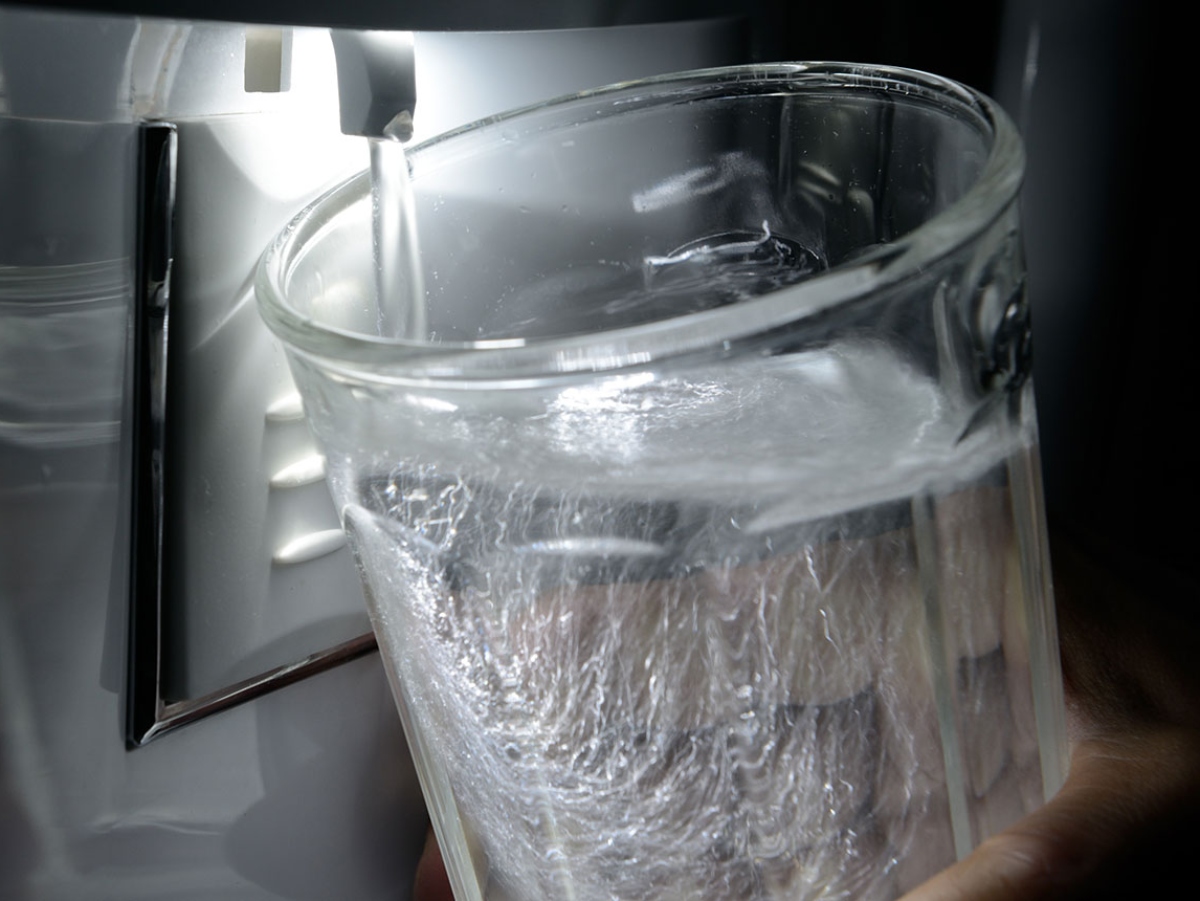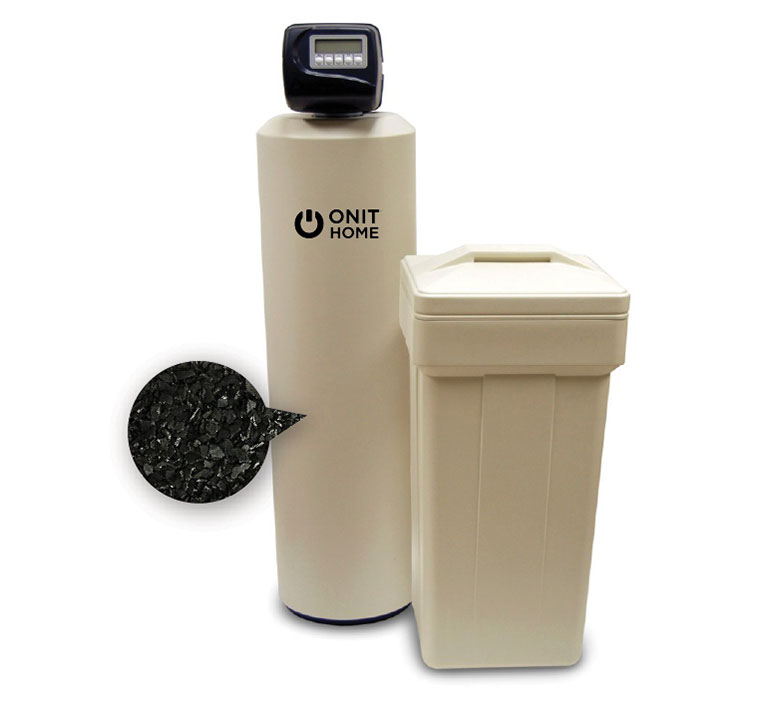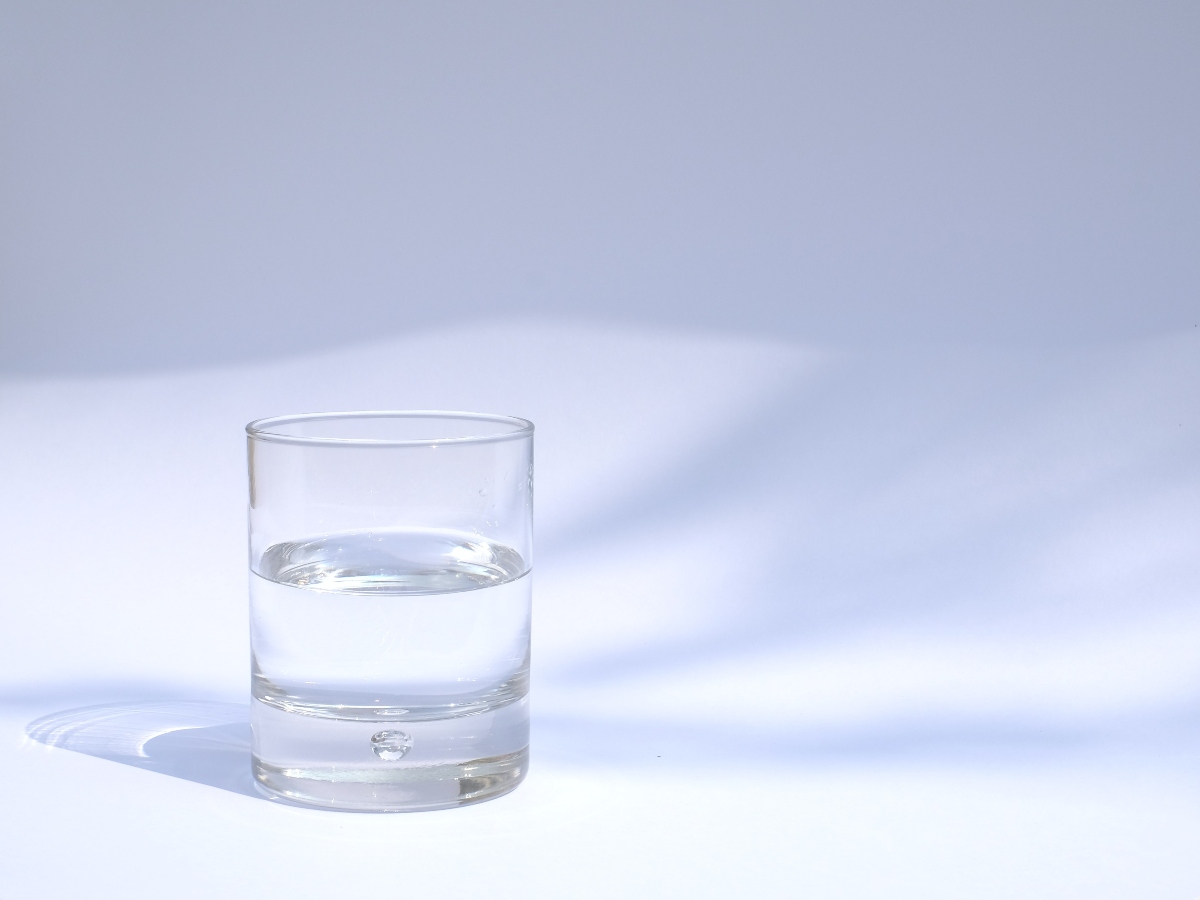If you have a refrigerator with a built-in filter, you may be under the impression that the filter is strong enough to remove contaminants from your water source. Unfortunately, that’s not always the case! While a fridge filter is easy and convenient to use, it’s not designed to clean your water in the way that many homeowners would like. Let’s break down what a fridge filter is and why your home is better served with a whole home water filtration system.
What Type of Filter is a Fridge Filter?
A fridge filter is a carbon filter, generally only having an NSF 42 Certification. This is also known as the aesthetic effect, meaning it reduces but does not remove 100%. This means that the filter is only removing chlorine from the water, overall helping with the smell and taste. However, it does not remove anything past chlorine, giving customers a false sense of security for what their filter is removing.
Carbon filters work through a chemical reaction between the activated carbon and the chlorine present in water. The carbon works like a sponge to absorb the chlorine from the water. While we love our water to be instantaneous, carbon filters work better the longer the water is exposed. When you’re using a fridge filter, the water only runs through it at a quicker pace, leaving more chemicals in your water as a result.
What Do Fridge Filters Remove?
A fridge filter is only reducing chlorine. Some fridge filters can remove lead, but they’re not as common. The CDC says that homeowners mostly filter their water due to taste, but consumers aren’t always aware of the other contaminants and chemicals that are still present in their water.
Is a Fridge Filter Effective in Filtering Contaminants?
No, it is not. It can reduce chlorine by up to 90%. Some fridge filters are designed to filter, while most fridge filters are designed that way! Instead, the carbon filter is simply neutralizing the chlorine. This is because the filter is not fine enough to remove anything past larger debris and sediment.
Refrigerator water filters fail to remove all the contaminants, so microorganisms, like salmonella or coliform, can make it past your filter and lead to potential health issues.
What Contaminants Do Fridge Filters Leave In Water?
- Arsenic
- Bacteria
- Barium
- Beryllium
- Cadmium
- Chromium
- Copper
- Fluoride
- Lead
- Mercury
- Nickel
- Pharmaceuticals
- Sediment
- Selenium
- Sulfates
- Thallium
- Trihalomethanes (THMs)
- Volatile Organic Compounds (VOCs)

What Happens When You Don’t Replace a Fridge Filter?
At a minimum, fridge filters need to be replaced every six months. Additionally, a fridge filter is a continual cost of at least $30. That means you’re spending at least $60 annually on a filter that doesn’t remove any contaminants! Not all refrigerators have indicator lights, so it can be easy for homeowners to forget and further expose themselves to dirty water.
Just like how we said that a carbon filter works like a sponge for chlorine, think of the same logic when we’re talking about what happens when you don’t replace this filter. As the filter continues to remove the chlorine, it absorbs the excess chemicals and collects dirt and grime. You wouldn’t use the same dirty sponge for months, so think of the filter in the same way.
Waterborne bacteria thrive in fridge filters because it needs fungus or moisture to survive. When people fail to change their filters, it creates the perfect atmosphere for waterborne bacteria to grow. This is because those filters can get clogged, leading to excess moisture. From there, if you don’t replace your filter, you’re also contaminating the dispenser and your ice. A study found that water dispensers can be coated with a concerning level of mold and yeast. Additionally, dispensers can pick up on airborne particles from rotten food in kitchens.
Why a Whole Home Water Filtration System Is Right For Your Home
A whole home water filtration system is your one-stop solution for high-quality water running throughout your entire home. This system is installed by your main water line, so it filters water straight at the source! This means clean and filtered water from each tap in your home. From cooking, bathing, and cleaning, your home water source is the cleanest water for your entire family.
Whole home water filtration is a high-quality system designed for top performance around your entire household. You and your family can expect clean and delicious water, thanks to the NSF/ANSI Standard 58 qualifications and rigorous efficiency testing.
This system is so much more than a filtration system! This is a fully-automated design with self-cleaning functionalities. This means low maintenance, no filter replacements, and a permanent solution for your household to enjoy clean water year-round. Don’t worry about exposing your family to harsh contaminants, but instead, find a water solution that works for you year-round!
Signs You Need a Whole Home System
You may look at your cup of water from your fridge filter and think it’s safe, but as you read before, this just isn’t the case! There are different ways that contaminants make themselves present in your home, so here are the common symptoms to look for:
- Smell. Ever catch the smell of rotten eggs from your tap water? That’s a sure-tell sign that you have sulfur in your water.
- Taste. Look for tastes like pool water, rotten eggs, or even bleach!
- Dry skin and hair. This happens when we bathe with hard water.
- Stains on your dishes and/or faucets. Using hard water on your dishes leads to mineral deposits. This leaves pesky stains that make your home appear dirty.
- Rust stains. Ever find a red mark on your appliances? This is from hard water! Common areas it appears include your sinks, toilets, or sometimes your clothing.
- Corroded pipes. Pipes become corroded when there’s a high amount of total dissolved solids (TDS) or sulfur in your water. This affects your pipes, fixtures, plumbing, and appliances, leading to costly repairs for homeowners.

ONIT Home Ranger Series
Say goodbye to contaminated water and hello to your home’s new favorite accessory, the ONIT Home Ranger Series! This filtration system gives your home a deep and powerful filtration option, upgrading your whole home filtration system with additional mediums and components. This includes:
- Quartz/Garnet. This provides sediment filtration and promotes an even distribution of purification to your water.
- Blackcat Resin. The resin establishes a higher capacity to remove iron and hard materials.
The ONIT Home Ranger series enhances capabilities through a catalytic carbon filter instead of the standard coconut shell filter. This upgraded carbon filtration guarantees a reduction in chloramine (chlorine and ammonia) particles. It holds a higher capacity for the reduction of chlorine and reduces the presence of THMs, VOCs, and hydrogen sulfide (rotten egg smell in your water).
This is a self-generating system, giving you the freedom to have a machine work for you! Fridge filters need to be regularly maintained due to their small size, but a whole home system is both powerful and long-lasting.
ONIT Home Provides Safe Drinking Water
After your professional installation, your whole home filtration system produces clean, healthy, and fresh-tasting water from every faucet. The ONIT Home whole home water filtration system removes 97% of arsenic, calcium, chlorine, chloramines, copper, fluoride, lead, and more! To get started, visit us online or call us right now at 1-833-433-0331 to speak with a water specialist.



